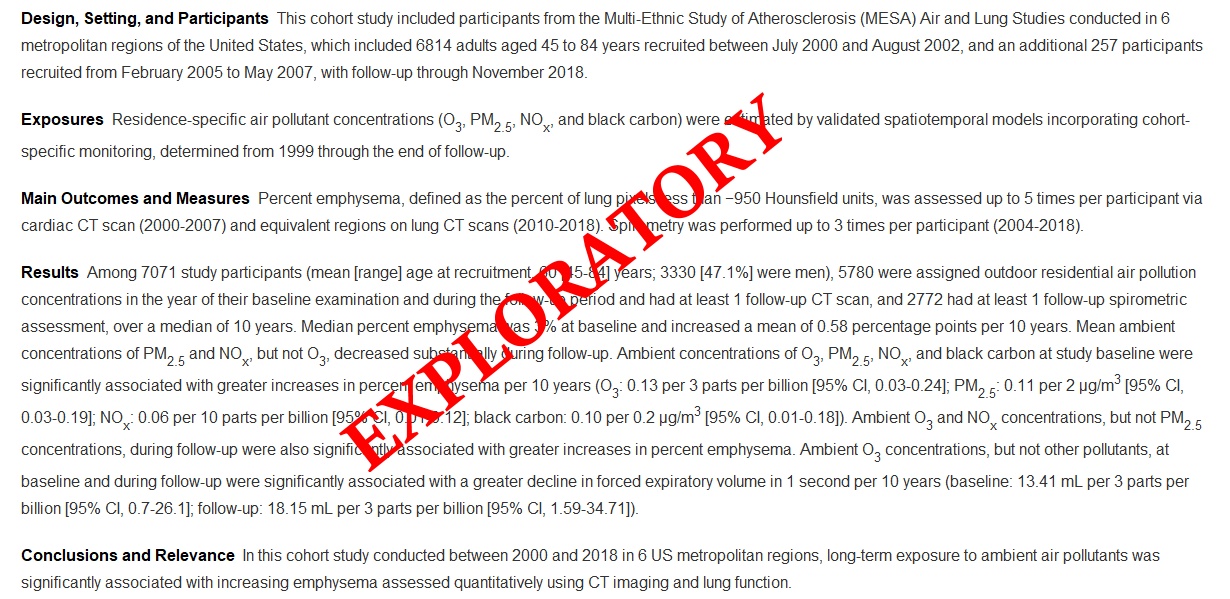Though ozone in air has dropped since the 1980s, the statistical link found that if the ambient ozone level was 3 parts per billion higher where a person lives compared to another location over 10 years, they could create an increase in emphysema risk roughly the equivalent of smoking a pack of cigarettes a day for 29 years. The exploratory paper also suggests that ozone levels in some major U.S. cities are increasing by that amount, and they blame climate change. The annual averages of ozone levels in study areas were between about 10 and 25 parts per billion.
The data were drawn from an 18-year study involving more than 7,071 people ages 45-84 mapped onto the air pollution between 2000 and 2018 in six metropolitan regions across the U.S.: Chicago, Winston-Salem, N.C., Baltimore, Los Angeles, St. Paul, Minnesota, and New York. The participants were distilled from the Multi-Ethnic Study of Atherosclerosis (MESA) Air and Lung studies. Though the results of this paper are only exploratory, the data was sound. The MESA Air study collected measurement of exposures for years in these metropolitan regions, and measurements were takenat the homes of many of the participants. There were more than 15,000 CT scans repeated on thousands of people over as long as 18 years and emphysema was measured from CT scans that identify holes in the small air sacs of the participants' lungs, and lung function tests, which measure the speed and amount of air breathed in and out.

Most airborne pollutants are in decline because of successful efforts to reduce them, but ozone has not claimed as much as bans on products claimed they would, because it is natural, like when ultraviolet light reacts with soil. Some contend that trace chemicals from fossil fuels are the culprit.
"To our knowledge, this is the first longitudinal study to assess the association between long-term exposure to air pollutants and progression of percent emphysema in a large, community-based, multi-ethnic cohort," said first author Meng Wang, an assistant professor of epidemiology and environmental health at the University at Buffalo.




Comments